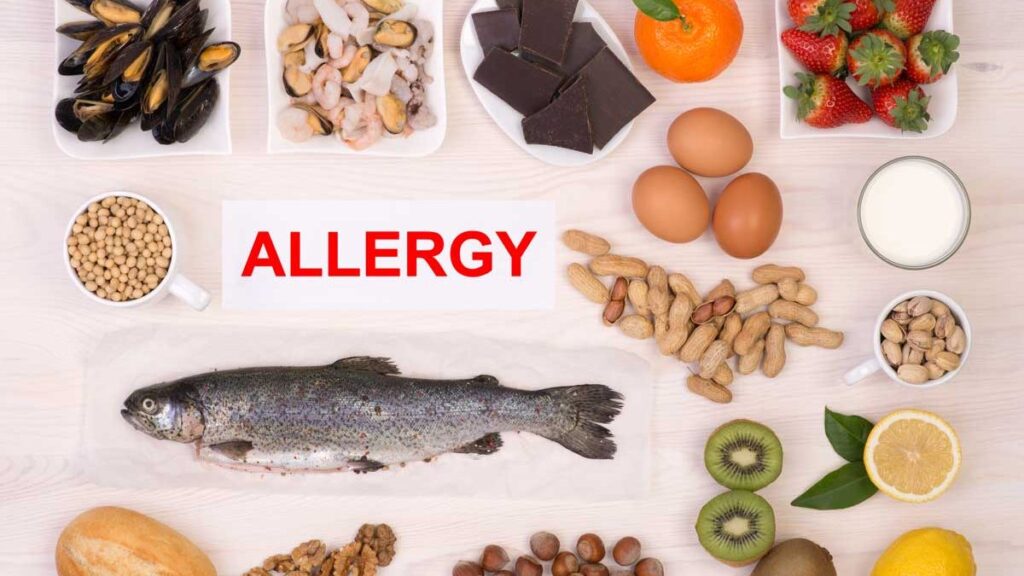Every year, the global health community celebrates World Allergy Week, a series of week-long events spearheaded by the World Allergy Organization and aimed at creating awareness on allergies and how to prevent them. This year’s World Allergy Week held between June 23-29, 2024 with a focus on childhood food allergy.
Studies have shown that in the last 25 years, food allergy has risen to become a major public health concern, affecting approximately 220 million people worldwide. Although this challenge is particularly pronounced in the western world, food allergy is fast becoming a significant phenomenon in many individuals and families in Africa and other developing societies. In children, food allergies particularly call for utmost attention given that about 40% of allergic reactions attributable to food in children can be life threatening.

So what is food allergy?
The body’s immune system serves as a defence mechanism to eliminate infections and other foreign entities that portend danger to the body. Food allergy occurs when this protective system perceives a food or an ingredient in a food as harmful, and consequently mounts a immune reaction against it. It is important to distinguish this from food intolerance, which does not involve the immune system and often arises as a result of other factors such as inability to digest or absorb certain food substances. Also noteworthy is the fact that the body can be allergic to many other things, apart from food.
What kind of foods can your child be allergic to?
While any food can elicit an allergic reaction, these foods and food ingredients have been shown to cause majority of cases of food allergies in children:
- Cow milk
- Eggs
- Tree nuts such as cashew nuts, pine nuts and walnuts
- Peanuts
- Fish
- Wheat
- Soybeans
- Shellfish
How do you know if your child has a food allergy?
The symptoms of food allergy may involve the skin, the respiratory tract, gastrointestinal tract and the cardiovascular system. The following symptoms should raise your suspicion of a food allergy in your child:
- Recurrent vomiting and/or stomach cramps after eating a certain food
- Repetitive cough
- Hives
- Paleness or flushing of skin
In severe allergic reactions, known as anaphylaxis, the child may develop one or more of the following:
- Swelling of the tongue which may affect the ability to talk
- Difficulty with breathing
- Dizziness
- Difficulty with swallowing
- Weak pulses

Usually, these symptoms would manifest within two hours of ingesting the food. However, in rare occasions, the reactions may not start until after 4-6 hours or even longer.
How are food allergies diagnosed?
A paediatrician may recommend some tests for your child to confirm their allergy to certain foods. These tests include:
- Skin prick: this tests for allergies by placing minute amount of the food on your child’s arm and carefully using a needle to prick the food particles into the skin. The test is deemed positive if small, itchy lumps appear on the skin after a few minutes.
- Blood tests: these tests check for the presence of a specific antibody (allergen specific IgE) in the blood which the body produces when exposed to a particular type of food. This test is more reliable than the skin prick test.
How can you prevent food allergies in children?
As with other illnesses, the best attitude to food allergy is prevention. This is best done by identifying the foods your child is allergic to and trying as much as possible to avoid them. However, it is not advisable to remove a certain food from your child’s diet without speaking with a paediatrician. This is because unnecessarily avoiding some foods can impact negatively on your child’s growth and well-being. Regular check-ups are also necessary to monitor your child’s allergy journey, as most children tend to outgrow their allergies.
To treat an active allergic reaction, your child may be prescribed with medications such as adrenaline, which works quickly to resolve the symptoms. In the case where your child is prescribed with this medication, they must carry it with them at all times.
Remember that food allergies do not have to be devastating. Be proactive, pay close attention and know your child’s allergies. Ultimately, do not hesitate to speak to a doctor if you notice any symptom.









